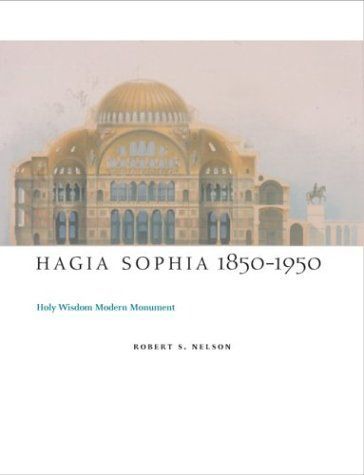
Hagia Sophia, 1850-1950 Holy Wisdom Modern Monument
Hagia Sophia, the Church of Holy Wisdom, sits majestically atop the plateau that commands the straits separating Europe and Asia. Located near the acropolis of the ancient city of Byzantium, this unparalleled structure has enjoyed an extensive and colorful history, as it has successively been transformed into a cathedral, mosque, monument, and museum. In Hagia Sophia, 1850-1950, Robert S. Nelson explores its many lives. Built from 532 to 537 as the Cathedral of Constantinople, Hagia Sophia was little studied and seldom recognized as a great monument of world art until the nineteenth century, and Nelson examines the causes and consequences of the building's newly elevated status during that time. He chronicles the grand dome's modern history through a vibrant cast of characters—emperors, sultans, critics, poets, archaeologists, architects, philanthropists, and religious congregations—some of whom spent years studying it, others never visiting the building. But as Nelson shows, they all had a hand in the recreation of Hagia Sophia as a modern architectural icon. By many means and for its own purposes, the West has conceptually transformed Hagia Sophia into the international symbol that it is today. While other books have covered the architectural history of the structure, this is the first study to address its status as a modern monument. With his narrative of the building's rebirth, Nelson captures its importance for the diverse communities that shape and find meaning in Hagia Sophia. His book will resonate with cultural, architectural, and art historians as well as with those seeking to acquaint themselves with the modern life of an inspired and inspiring building.